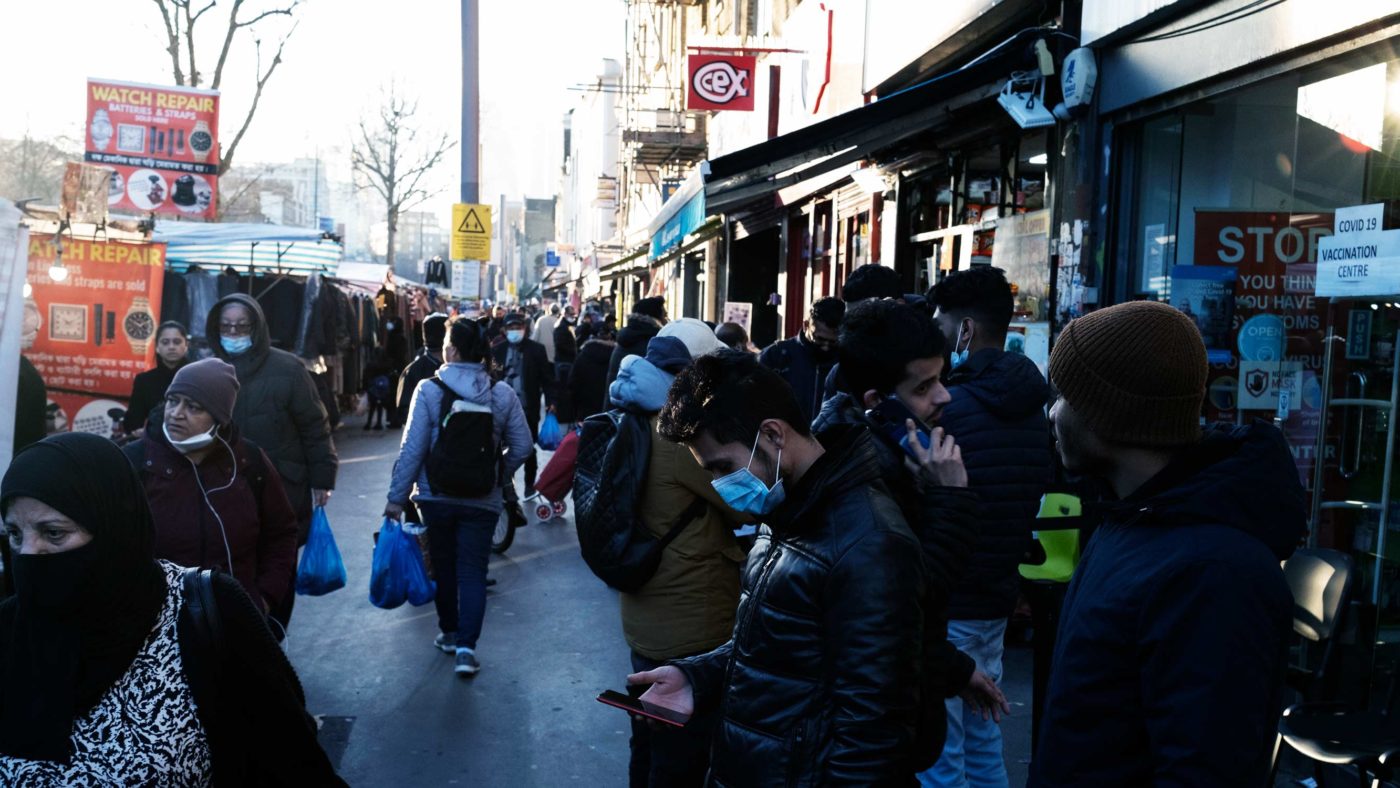While Ukraine and the cost of living understandably dominate the headlines, important domestic issues have taken something of a back seat.
One of the policy areas we should be talking about far more is integration, especially given that the UK is about to welcome thousands of new arrivals fleeing Putin’s senseless aggression.
A new Policy Exchange report describes integration as a ‘political orphan’, with no consistent lobbying and no mainstream party willing to put it at the heart of their agenda.
Brendan Cox, one of the report authors and husband of murdered MP Jo Cox, succinctly identifies the key problems with our political culture in regard to integration.
Compared to most centre-right parties in the Western world, the Conservatives are pretty comfortable with both demographic and cultural change. At the same time, as Cox notes, the Government is held back from tackling these issues head-on by fears of being seen not only as the ‘nasty party’, but a racist one.
And though the party has certainly made substantial progress with some ethno-religious groups – especially upwardly-mobile Hindu voters – it should be performing much better with other traditional-minded minority communities where family and faith are at the heart of everyday life. Among Muslims in particular, the Tories continue to fare poorly. And the recent allegation from MP Nusrat Ghani that she was fired from a ministerial job because a party whip said her ‘Muslimness’ was ‘making colleagues’ uncomfortable’ was certainly a major setback on that front.
For Labour, on the other hand, the fact the party continues to command high levels of ethnic-minority support (especially within Britain’s sizeable Sunni-majority Pakistani and Bangladeshi-origin communities), means there is little electoral incentive to pursue a robust approach to integration. The blunt truth is that Labour continues to rely on minority voters in inner-city areas and post-industrial towns characterised by high levels of socio-residential segregation. Add to that the presence in the party of self-appointed ‘community leaders’ and identitarians who view integration through the prism of anti-racism and you have a recipe for inertia.
Simply put, we cannot make headway on social cohesion while our democracy remains paralysed by a toxic combination of identity politics and excessive political correctness.
The irony is that the Conservatives have a set of ‘classic’ values that cut across a range of ethnic and religious minorities – a focus on family, community and religious faith as sources of resilience. Yet their efforts to impart such an agenda are somewhere between underwhelming and invisible. Indeed when it comes to all-important ‘values’ debates, ministers seem to spend more time talking about BBC funding or the latest ‘Woke’ outrage than family values or community cohesion.
Labour’s problem is more insidious. Because of the nature of its electoral coalition, the party has been pitifully reluctant to speak up about problematic trends among certain minority groups.
The party needs to speak with a much clearer voice on practices such as forced marriages, honour-based violence and female genital mutilation that have no place in our society. There also needs to be greater political engagement with the reality that cultural barriers which block modest female aspirations – especially over labour market participation – continue to persist. And we must all be honest with ourselves – certain forms of discrimination are more prevalent within ethnic and religious minorities when compared with the white British mainstream.
Indeed, while post-Corbyn Labour has made progress in healing its relationship with British Jewish communities, it continues to overlook the ‘inconvenient truth’ that levels of antisemitism are troublingly high within traditionally Labour-voting British Muslim and Black British communities.
The big question, though, is what minority groups – often with strongly held traditional values – are being asked to integrate into.
Britain is a world leader when it comes to family breakdown, loneliness among the elderly is a national scandal and we are the binge-drinking capital of Western Europe. Our political class seems to spend more time debating the inane arguments of radical transgender activists than any of these far more pressing issues, while – at the risk of sounding prematurely middle-aged – our cultural landscape is littered with mediocre, low-achieving ‘celebrities’ trying to prolong their 15 minutes in the spotlight. Why would a traditional-minded minority voter want to integrate into such a society?
We shouldn’t be too gloomy though. As I’ve written before on CapX, the UK remains one of the most successful multi-ethnic democracies in human history, and we shouldn’t disregard that fact. We should also acknowledge and learn from the successes of particular ethnic and religious minority groups.
For instance, Chinese- and Indian-origin minorities now outperform the white-British majority across a range of educational and economic metrics. Compared with their white British peers, Indian- and Bangladeshi-origin children in England are both less likely to live in a lone-parent household and have a higher average Attainment 8 score (measuring pupils’ results in eight GCSE-level qualifications). Pupils from the Chinese ethnic group score the highest out of all groups. More concerningly, the one ethnic minority group which is ‘hyper-integrated’ into the white working-class mainstream – Black British Caribbeans – is falling behind on a host of social, educational and economic metrics.
It is time to do away with tired and outmoded forms of thinking on social cohesion. Rather than tip-toeing around people’s sensibilities for fear of causing offence, our political class needs to work on establishing a common moral-cultural standard that helps to integrate ethnic and religious communities into a cohesive whole.
But are our mainstream political parties mature and courageous enough to take on such a challenge? I’m not so sure.
Click here to subscribe to our daily briefing – the best pieces from CapX and across the web.
CapX depends on the generosity of its readers. If you value what we do, please consider making a donation.


